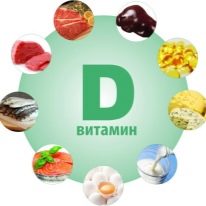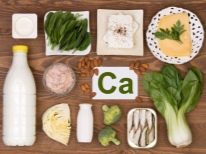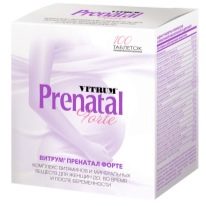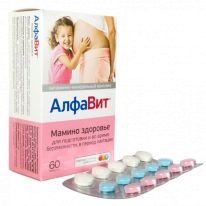What vitamins for pregnant women is better to choose? Composition and rating
The question of the need to take vitamin complexes during childbirth causes a lot of controversy both among expectant mothers and doctors. Some women consider such drugs as "chemistry" and doubt their effectiveness, others are confident that vegetables, fruits and other products in stores are unable to provide an adequate level of mineral and vitamin substances, therefore, not taking supplements.
Obstetricians and gynecologists emphasize that expectant mothers need not just multivitamins, but complexes specially designed for them. Such preparations take into account both the increased requirements for vitamins in general during the planning or waiting period for the baby, and their influence on the development of the embryo in different trimesters.
Needs during pregnancy
Women in position require more vitamins and minerals. This explains the increased appetite of many expectant mothers and the use of products that they previously did not really like. So their body is trying to fill the elements of the food those substances that are necessary for the development of the crumbs in a particular period.
According to studies, the lack of folic acid, vitamin E, iron, iodine and B vitamins significantly increases the risk of both complications in pregnancy, and malformations and diseases in newborns.
Scientists have determined that in pregnant women the need for zinc, vitamin B12 and iodine is increased by 30%, in calcium - by 1.5 times, and in iron and folic acid - twice as compared with women who do not expect a child.
The most important vitamins.
- Folic acid - One of the most important for future mothers of B vitamins. Active metabolites of this compound, called folates, are involved in the synthesis of RNA and DNA. Their lack in the early stages can disrupt the formation of the baby’s nervous system and cause defects that are incompatible with life. In addition, folic acid affects the formation of blood vessels in the placenta and prevents its premature detachment. Take this vitamin during pregnancy is recommended at a dosage of 400-800 mg per day.
- Vitamin E no less important in the first trimester, since it affects the formation of sex hormones, is necessary for the development of the placenta and is able to protect cell membranes from the damaging effects of aggressive radicals. The need for this vitamin during gestation period increases by 1.5 times, so a woman in the position should receive it in a dose of at least 10-15 IU every day.
- Other B vitamins used for metabolic reactions, the formation of nervous tissue, the formation of neurotransmitters, hemoglobin synthesis and many other processes. Under their action, nutrients are fully assimilated. They are necessarily included in the complexes for future mothers.
- Vitamin C needed to maintain the immunity of women, and also participates in the synthesis of collagen. In addition, this powerful antioxidant accelerates healing of damage, affects capillary permeability, glucose uptake and iron absorption. The norm of ascorbic acid for a woman in the position is 70-100 mg per day.
- Vitamin D able to form in the skin under the action of sunlight, so its deficiency is often observed in the autumn-winter period.Thanks to this compound the exchange of calcium and phosphorus is regulated. Future mothers should receive it daily in the amount of 400-600 IU.
- Vitamin A necessary for many metabolic processes, is involved in the differentiation of tissues of the embryo (in particular, bones and epithelium) and the development of the placenta. Everyone also knows the positive effect of retinol on vision, but its excess is dangerous and can cause developmental abnormalities in the baby. A safe amount of vitamin A per day for a pregnant woman is 2500-3300 IU.
The most needed minerals and trace elements.
- Iron used in hemoglobin synthesis and tissue respiration. With a lack of such an element, oxygen gets worse into the cells, which is fraught with various violations of fetal development. Iron deficiency provokes anemia, which worsens the future mom's condition, causing weakness, fatigue, drowsiness, irritability, tachycardia and other symptoms. The iron present in multivitamins is absorbed better due to its combination with ascorbic and folic acids. His optimal dosage per day for expectant mothers is 30 mg.
- Calcium It is an important element not only for the formation of bones, but also for the transmission of impulses along the nerve fibers. In addition, without the participation of calcium, muscle contraction will not occur and blood coagulation will be disturbed. A woman in position should receive such a mineral in the amount of 1000-1500 mg every day (most of the food).
- Iodine It is important both in early pregnancy, and in 2-3 trimesters. This trace element affects the formation of thyroid hormones. Its deficiency violates the metabolism and can affect the mental development of the infant. The daily intake of iodine in the body of the future mother should be 200 micrograms.
- Zinc affects the synthesis of certain hormones, including insulin. This element accelerates tissue regeneration and affects the fetal skeletal system. Its sufficient intake during pregnancy (11 mg per day) reduces the risk of fetal abnormalities.
- Have magnesium note the ability to normalize blood pressure when it rises and soothe the nervous system. Such a macro element is included in complexes for expectant mothers in order to reduce the risk of abortion, prevent preeclampsia and preterm delivery. Its daily dosage for women in anticipation of the baby is 400-500 mg.
Application features
Most multivitamins for pregnant women are taken only once a day, but there are exceptions, so the mode of administration should be clarified. It is recommended to drink such supplements in the morning so that the components of the tablets do not affect the sleep and the quality of night sleep. It is also important to follow such recommendations.
- You can not assign vitamin complexes on their own. The expectant mother should choose a suitable supplement together with the doctor who observes her during gestation, because each of the complexes has its own characteristics and limitations.
- Before you begin to drink purchased multivitamins, read the instructions, find expiration dates on the jar or box, and verify the integrity of the package. Take an expired drug, for example, if it is left from a previous pregnancy, is unacceptable.
- Drink multivitamins best non-carbonated water. Breaking the pill in most cases is not worth it, because it will damage its shell and affect the absorption of active substances. However, some vitamins can be divided, as indicated by the risks on the tablet.
- Exceeding the daily dose of vitamins prescribed by a doctor is dangerous. An excess of their components brings no less harm than their deficiency. For this reason, you should not take several complexes at the same time.
- The course of multivitamin use often lasts 1 month, after which they take a short break. However, to clarify the duration of admission is desirable from a specialist.
If, after the use of tablets or capsules, any disturbing changes have occurred, for example, reddened skin, nausea, or insomnia began to bother you, you should immediately notify the obstetrician-gynecologist.
When multivitamins are contraindicated for the expectant mother?
A woman should not drink multivitamin complexes if she has:
- individual hypersensitivity to the ingredients of the additive;
- there are symptoms of hypervitaminosis A or D;
- urolithiasis was detected;
- there are violations in the exchange of copper;
- analyzes have shown excess blood levels of calcium or iron;
- diagnosed with B12-deficient anemia.
If the expectant mother is prescribed any medications, then their compatibility with multivitamins should be discussed with the doctor. In most cases, the specialist will recommend to do a pause of at least 1.5-2 hours between taking such agents so that their components do not interfere with each other’s actions.
The most popular complexes
The range of drugs and dietary supplements for future mothers on the shelves of pharmacies is quite large. Among them, several drugs are in special demand.
"Elevit"
Preparations with this name are produced by the well-known Bayer Company and are known for their quality. The most popular among them is the "Elevit Pronatal" - supplement, which is used from the 13th week of gestation to the birth itself. These are yellow oblong tablets containing 12 vitamin compounds and 3 minerals, as well as 4 microelements.
The average price of 30 pieces - 600-700 rubles. For the early period, the “Planning and First Trimester” complex was developed separately, the basis of which is 12 vitamins and 8 mineral substances. A feature of such multivitamins is the presence of folates, which are maximally absorbed in the body of the future mother (they are called "metafolin"). The tablets themselves are white, oval in shape, costing about 500 rubles for 30 pieces.
Vitrum
The American company "Unifarm" also offers pregnant women two multivitamin complexes. The basic supplement is Vitrum Prenatal, in which there are not only the 10 most important vitamin substances in suitable dosages for expectant mothers, but also three mineral components - iron, calcium and zinc.
Such tablets are distinguished by an elongated shape, pink color, cost about 500 rubles for 30 pieces. The enhanced composition of vitamins and much more mineral compounds is in the Vitrum Prenatal Forte complex. The supplement includes iodine and beta carotene. It is represented by gray oblong tablets with an average price of 500-600 rubles for 30 pieces.
"Fembion"
The line of such Austrian multivitamins for future mothers is completely called "Femibion Natalcare" and represented by 2 additives. Under the number "1" produced pink oval tablets designed for women in early pregnancy (in the first 12 weeks). They are a source of 10 vitamins and iodine.
The same tablets are part of the complex "Femibion 2", taken from week 13 to the end of gestation, But in addition to the number "2", in addition to 30 tablets, there is the same number of yellow soft transparent capsules containing an additional dose of vitamin E plus omega-3 fatty acid, which is important for the development of the brain and the baby's vision, which is abbreviated to DHA. Another advantage of "Femibion" is the presence of metafolin. The average price of one pack of complex No. 1 is 500 rubles, of preparation No. 2 - 900-1000 rubles.
"Alphabet"
In the line of such multivitamin preparations there is a complex for pregnant women called "Mother's Health". Its main feature is the division of the daily dose of beneficial elements into three different pills, so that digestibility improves, and the allergic reaction occurs less frequently. One package includes 20 pink (with iron), blue (with antioxidant vitamins) and cream (with calcium) tablets and costs about 350 rubles.
"Complivit"
In complex "Mama" This brand has 11 vitamin compounds, supplemented with 7 minerals.The supplement includes the most important substances for the future mother and fetus, warning of nervous system defects and anemia. For a jar with 30 oblong brown tablets, you need to pay about 200 rubles.
In addition, the Russian company Otisipharm offers three multivitamin complexesand "Complivit Trimester". Their composition meets the needs of pregnant women in each trimester and includes 22 macronutrients in each tablet. Another plus "Trimester" - special production technology, thanks to which all elements are compatible and operate as efficiently as possible. The average cost of one pack is 300 rubles.
Multi Tabs
In the line of such popular multivitamins there is an additive for pregnant women. "Perinatal", containing 11 vitamin substances, as well as minerals that are most important for the normal development of the fetus and the well-being of the mother. These are oval white tablets, which are sold in a pack of 60 pieces and cost about 450 rubles.
This is not a complete list of popular multivitamin supplements from the top ranking that help maintain the future mother's health, improve her well-being and contribute to the proper development of the baby in the womb.
Some women prefer to abandon complex vitamins in favor of only certain substances, which, in their opinion, are especially important (for example, they drink folic acid and iodine separately).
Someone orders vitamins abroad, considering that chewable American pills, Finnish or Japanese drugs are more natural and safe.
Comparison of the compositions of the most popular, judging by the reviews of experts, vitamin supplements for expectant mothers is shown in the table (daily dosages recommended by the manufacturer are taken into account).
"Elevit Pronatal" | Fembion 2 | Vitrum Prenatal Forte | "Alphabet Mom's Health" | |
Vitamin A | 3600 IU | - | 2500 IU | - |
Beta carotene | - | - | 1500 mcg | 4000 mcg |
Vitamin E | 15 mg | 25 mg | 30 mg | 12 mg |
Vitamin D | 500 IU | - | 400 IU | 400 IU |
Vitamin C | 100 mg | 110 mg | 120 mg | 90 mg |
Vitamin B1 | 1.6 mg | 1.2 mg | 3 mg | 1.2 mg |
Vitamin B2 | 1.8 mg | 1.6 mg | 3.4 mg | 1 mg |
Pantothenic to-that | 10 mg | 5 mg | 10 mg | 5 mg |
Vitamin B6 | 2.6 mg | 1.9 mg | 10 mg | 2 mg |
Folic acid | 800 mcg | 400 mcg | 800 mcg | 600 mcg |
Vitamin B12 | 4 mcg | 3.5 mcg | 12 mcg | 3 mcg |
Vitamin PP | 19 mg | 15 mg | 20 mg | 19 mg |
Biotin | 200 mcg | 60 mcg | 30 mcg | 30 mcg |
Vitamin K | - | - | - | 60 mcg |
Calcium | 125 mg | - | 200 mg | 250 mg |
Iodine | - | 150 mcg | 150 mcg | 150 mcg |
Iron | 60 mg | - | 60 mg | 20 mg |
Magnesium | 100 mg | - | 25 mg | 50 mg |
Zinc | 7.5 mg | - | 25 mg | 12 mg |
Copper | 1 mg | - | 2 mg | 1 mg |
Selenium | - | - | 20 mcg | 40 mcg |
Chromium | - | - | 25 mcg | 25 mcg |
Molybdenum | - | - | 25 mcg | 25 mcg |
Manganese | 1 mg | - | 5 mg | 1 mg |
Phosphorus | 125 mg | - | - | 125 mg |
DHA | - | 200 mg | - | - |
Taurine | - | - | - | 50 mg |
We will separately consider their pros and cons, based on the experience of women in the situation and their feedback:
Benefits | disadvantages | |
"Elevit Pronatal" | balanced composition; convenient use (1 time per day); increased dosage of folic acid; magnesium, calcium and phosphorus are better absorbed due to several compounds; pill can be divided into halves; availability in pharmacies; | does not contain iodine and selenium; large pill size; high cost; |
Fembion 2 | ease of use; the presence of omega-3 from fish oil; contains iodine; the presence of metafolin; | besides iodine, it does not contain other minerals important for the development of the baby; high price; |
Vitrum Prenatal Forte | convenience of reception only once a day; affordable cost; versatility - you can drink before conception, throughout pregnancy and during lactation; | large size of the drug; presence in the composition of dyes; |
"Alphabet Mom's Health" | small pill size; acceptable price; separation of vitamins and minerals, taking into account their digestibility; rare allergic reactions; | need to take three times a day; The composition includes dyes. |
Can I do without a multivitamin?
Of course, if a woman does not want to take complex vitamins, she can do without them. However, you need to take into account that during pregnancy, all the nutrients come to the baby from my mother's body, even if it is to her detriment. And therefore, avitaminosis and hypotrophy in newborn babies practically does not occur, even if a woman is, say, vegan. However, the price for such a choice will be high.
Mom's body will give the crumbs all that the baby needs, so after giving birth and breastfeeding, the woman risks seeing liquid hair, splitting nails, pale skin with fine wrinkles. Well-being without additional intake of multivitamins will also worsen, there will be complaints of weakness, loss of strength, dizziness, discomfort in the stomach, and so on.
To prevent this from happening, It is better to add the necessary elements to your diet with the help of pills, choosing a suitable complex together with an obstetrician-gynecologist.
This is especially important for women over 30 years old and expectant mothers with chronic illnesses, as well as problems with gestation in the past.
As for the time of year, most often multivitamins are prescribed in winter, in spring or autumn. In the summer, expectant mothers are recommended to consume more natural sources of such substances - greens, fruits, berries, and vegetables.
Thanks to the intake of multivitamin supplements:
- the defenses increase, so the future mother's body is better able to withstand attacks of viruses and catarrhal diseases;
- nutritional problems are smoothed out, for example, if a woman has severe nausea due to early toxicosis;
- supports the work of all internal organs;
- decreases the likelihood of congenital abnormalities in the fetus;
- the skeleton and all the organs of the crumbs develop correctly;
- reduced risk of abortion and problems with the placenta;
- the work of the central nervous system and the general condition of the pregnant woman are improved;
- the body of the future mother is prepared for labor and breastfeeding.
Free drugs
The state supports expectant mothers and provides women who are registered with antenatal clinics with important medications for them. Among them, there are vitamin preparations that are laid from the 30th week of pregnancy, and if a woman expects several babies at once, then from the 28th week. Payment of such complexes is made at the expense of the birth certificate. If a vitamin supplement does not cost more than 990 rubles, it is provided to a pregnant woman for free. At a higher price, the expectant mother can get a discount of 50%.
This benefit is designed to strengthen the health of pregnant women. A woman’s obstetrician-gynecologist writes out the vitamins once, suggesting one drug from the list of free drugs, which should be available at every antenatal clinic. This list includes both popular multivitamins and monodrugs, for example, "Vitamin E", "Potassium Iodide", "Ferretab Complex" or "Folic Acid".
If the required complex in the pharmacy is not available, the expectant mother will be offered an analogue or she can wait until the drugs are available again (this is given a period of 2 weeks).































